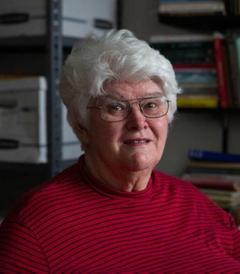 |
|
| Margaret Rossiter | |
Historian Margaret W. Rossiter, whose trilogy, Women Scientists in America, "documented in sharp detail the ways women were excised from the annals of science--and who coined the term 'the Matilda effect,' named for the 19th-century suffragist Matilda Joslyn Gage, to describe the age-old practice of attributing scientific achievements of women to their male colleagues," died August 3, the New York Times reported. She was 81.
In the late 1960s, Rossiter was working on her Ph.D. at Yale when a comment from one of her male professors struck her. Who were the women in science? she had asked. He replied that that there were none, while another professor mentioned Marie Curie. "I realized," she told Smithsonian magazine in 2019, "this was not an acceptable subject."
A few years later, she discovered a few entries about women in a 1906 directory titled American Men of Science. "I felt like a modern Alice," she wrote, "who had fallen down a rabbit hole into a wonderland of the history of science that was familiar in some respects but distorted and alien in others."
For the next 40 years, Rossiter researched the hidden work of female astronomers, botanists, biologists, chemists, engineers, entomologists, geologists, and physicists, and others.
In Women Scientists in America: Struggles and Strategies to 1940 (1982), the first volume of her trilogy, Rossiter wrote that "these materials transformed the project from a kind of collective biography of women scientists (hardly any of whose names are household ones) into a history of an occupational group whose status had risen and fallen over time as the women's role responded to external events and pressures."
M. Susan Lindee, a professor of the history and sociology of science at the University of Pennsylvania, said, "Margaret had a lasting and transformative impact on the history of women in science.... They were invisible to history. Their stories show us exactly how power works. That's her real legacy."
"Trained to advanced levels," Rossiter wrote in Women Scientists in America: Before Affirmative Action, 1940–1972. Vol. 2., "they were, to use some military terms of the period, 'camouflaged' as housewives, mothers and 'other,' and 'stockpiled' in cities and college towns across America (where many still remain), ready but uncalled for the big emergency that never came."
Rossiter's other books include The Matthew Matilda Effect in Science (1993), Writing Women into Science (2002), and the third volume of her trilogy, Women Scientists in America: Forging a New World Since 1972 (2012).

